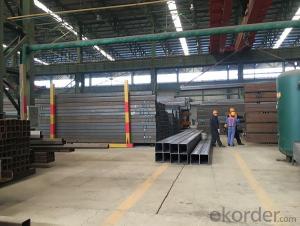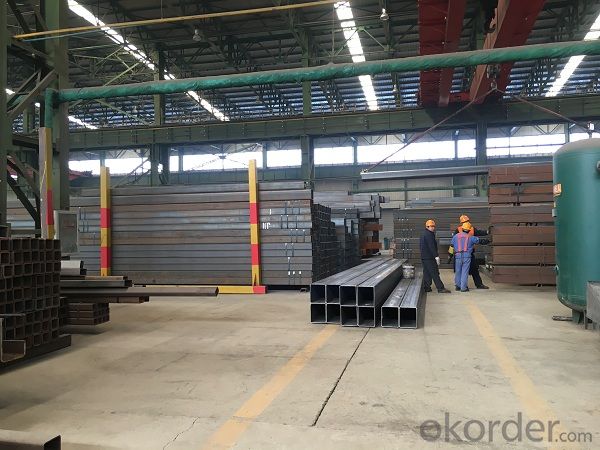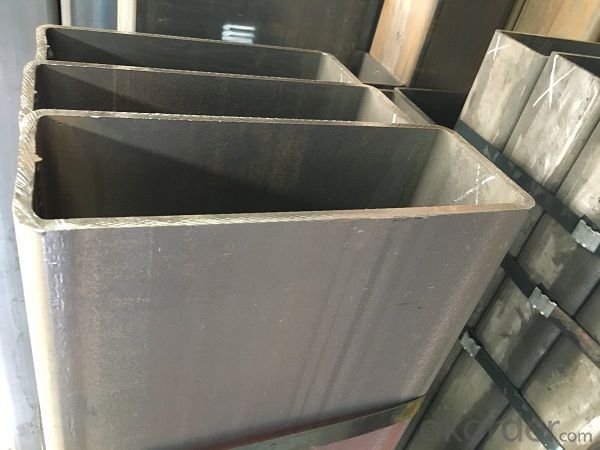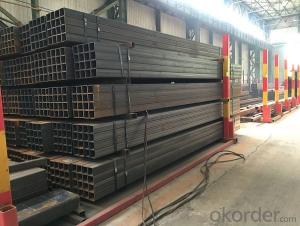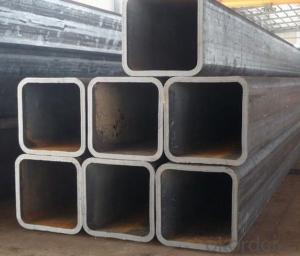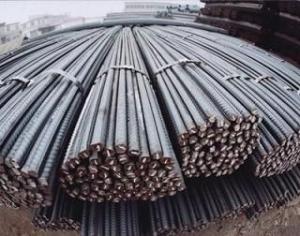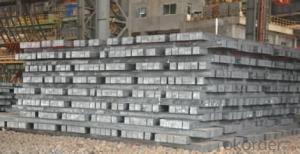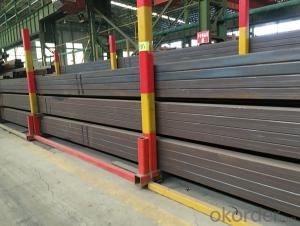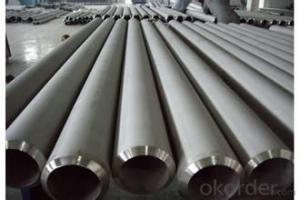Square rectangular pipes of various standard materials
- Loading Port:
- Tianjin
- Payment Terms:
- TT OR LC
- Min Order Qty:
- 22 m.t.
- Supply Capability:
- 15000 m.t./month
OKorder Service Pledge
OKorder Financial Service
You Might Also Like
Specification
1、 Square rectangular pipes of various standard materials
Square tube, square tube is a kind of call and rectangular tube, is equal and not equal to the length of steel pipe. Is the strip through the process of processing roll system. In general is the strip through the demolition of the package, flat, curly, welded to form a circular tube, and then rolled into a square tube and then cut into a square tube and then cut into the required length.
2、 Square rectangular pipes of various standard materials
• High manufacturing accuracy
• High strength
• Small inertia resistance
• Strong heat dissipation ability
• Good visual effect
• Reasonable price
3、 Square rectangular pipes of various standard materials
Standard | GB, DIN, ASTM |
Grade | 10#-45#, 16Mn 10#, 20#, 45#, 16Mn |
Thickness | 1.5 - 25 mm |
Section Shape | Square and rectangular |
Outer Diameter | 20*20 mm-------400*400mm 20*30mm*300*500mm |
Place of Origin | Tianjin, China (Mainland) |
Length | 3-12M |
Outer Diameter | 20*20 mm-------400*400mm 20*30mm*300*500mm |
Grade | 235B 345B |
Standard | ASME, ASTM |
1) Material:(ASTM A 106/A53 GRB.API5LGRB,GB,235B,345B
2) Specification range:OD: 20*30mm----300*500mm 20*20 mm---400*400mm ,WT: 1.5 - 25 mm ,length:3-12m or according to the requirement of clients.
3) Excutive standards:GB,ASME API5L.ASTM A 106/A53,Despite of the above
4) Surface:black lacquered,varnish coating or galvanized.
4、Packaging & Delivery
Packaging Details: | seaworthy package,bundles wrapped with strong steel strip |
Delivery Detail: | 15-30days after received 30%TT |
5、 Square rectangular pipes of various standard materials
①How is the quality of your products?
Our products are manufactured strictly according to national and internaional standard, and we take a test
on every pipe before delivered out. If you want see our quality certifications and all kinds of testing report, please just ask us for it.
Guaranteed: If products’ quality don’t accord to discription as we give or the promise before you place order, we promise 100% refund.
②How about price?
Yes, we are factory and be able to give you lowest price below market one, and we have a policy that “ for saving time and absolutely honest business attitude, we quote as lowest as possible for any customer, and discount can be given according to quantity”,if you like bargain and factory price is not low enough as you think, just don’t waste your time.Please trust the quotation we would give you, it is professional one.
③Why should you chose us?
Chose happens because of quality, then price, We can give you both.Additionally, we can also offer professional products inquiry, products knowledge train(for agents), smooth goods delivery, exellent customer solution proposals.Our service formula: good quality+good price+good service=customer’s trust
SGS test is available, customer inspection before shipping is welcome, third party inspection is no problem.
6、 Square rectangular pipes of various standard materials
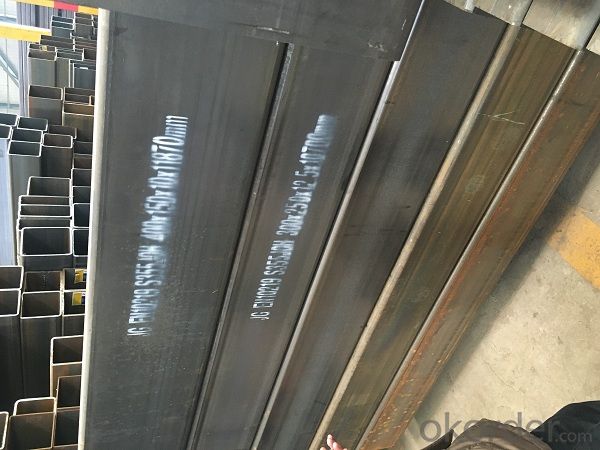
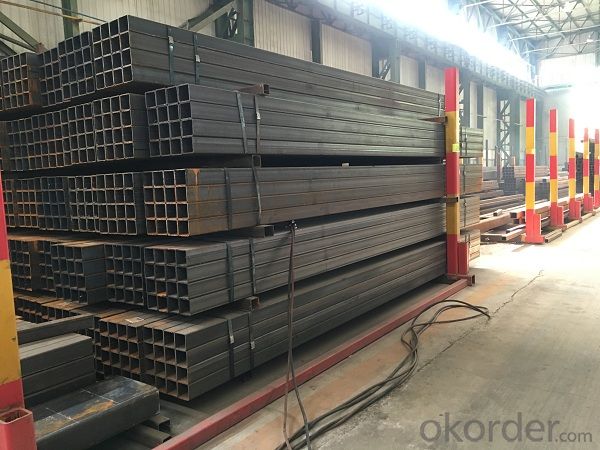
- Q: Can steel pipes be used for wastewater disposal?
- Yes, steel pipes can be used for wastewater disposal. Steel is a durable and corrosion-resistant material, making it suitable for transporting and disposing of wastewater safely and efficiently.
- Q: What are the different strategies for pipe laying using steel pipes?
- There are several strategies for pipe laying using steel pipes, including open cut trenching, trenchless methods such as horizontal directional drilling (HDD), microtunneling, and pipe jacking. In open cut trenching, a trench is dug and the steel pipes are laid in the trench before it is backfilled. HDD involves drilling a small pilot hole underground and then pulling the steel pipes through the hole. Microtunneling uses a remote-controlled boring machine to excavate a tunnel and install the steel pipes simultaneously. Pipe jacking involves pushing the steel pipes into the ground using hydraulic jacks while excavating the soil in front of the pipes. Each strategy has its advantages depending on the specific project requirements and conditions.
- Q: What is the electrical conductivity of steel pipes?
- Due to its metallic nature, steel pipes possess a notable degree of electrical conductivity. The specific composition and properties of the steel employed can influence the electrical conductivity of these pipes. Typically, steel exhibits a conductivity range of 6.99 × 10^6 to 9.64 × 10^6 siemens per meter (S/m) at room temperature. Consequently, steel pipes are capable of effectively conducting electricity and finding application in diverse fields, including electrical transmission and grounding systems.
- Q: Can steel pipes be used for transporting drinking water?
- Yes, steel pipes can be used for transporting drinking water. However, it is important to ensure that the steel pipes are properly coated and protected to prevent any corrosion or leaching that could contaminate the water. Additionally, regular maintenance and monitoring of water quality should be conducted to ensure the safety of the drinking water.
- Q: Can steel pipes be used for irrigation systems?
- Yes, steel pipes can be used for irrigation systems. Steel pipes are known for their durability, strength, and resistance to corrosion, making them suitable for use in irrigation systems where they may be exposed to water and various environmental conditions. Additionally, steel pipes can handle high water pressure and are available in different sizes, allowing for efficient water distribution throughout the irrigation system.
- Q: How are steel pipes used in the construction of irrigation systems?
- Steel pipes are commonly used in the construction of irrigation systems due to their strength and durability. These pipes are used to transport water from a water source, such as a well or reservoir, to the desired areas for irrigation. They are often used in underground or above-ground applications, providing a reliable and efficient means of delivering water to crops or plants. Steel pipes are resistant to corrosion and can withstand high pressure, making them ideal for irrigation systems that require long-term functionality.
- Q: Can steel pipes be used for piling?
- Certainly, piling can involve the utilization of steel pipes. Steel pipes find widespread use in piling applications owing to their robustness, endurance, and adaptability. They possess the ability to endure the weight and pressure exerted by the soil, thus furnishing a steadfast base for constructions. The process of driving specialized equipment ensures the secure placement of steel pipes employed for piling. Moreover, steel pipes can be effortlessly trimmed and fused to the desired dimensions, rendering them suitable for diverse piling endeavors.
- Q: How are steel pipes used in the construction of coal-fired power plants?
- Steel pipes are used in the construction of coal-fired power plants for various purposes. They are primarily utilized for the transportation of coal and other materials such as water, steam, and flue gas within the plant. Steel pipes are also used for the construction of high-pressure and high-temperature pipelines, which are essential for the efficient operation of boilers, turbines, and other equipment. Additionally, steel pipes are employed in the construction of structural components, such as support systems, frames, and columns, providing strength and stability to the overall infrastructure of the power plant.
- Q: What are the different types of steel pipe connections for fire sprinkler systems?
- There are three main types of steel pipe connections for fire sprinkler systems: threaded connections, grooved connections, and welded connections. Threaded connections involve screwing the pipes together using threads on the ends of the pipes. Grooved connections use grooves on the pipe ends and couplings with matching grooves to connect the pipes. Welded connections involve permanently bonding the pipes together using heat and a welding process. Each type of connection has its advantages and may be used in different applications based on factors such as pipe size, system design, and installation requirements.
- Q: How are steel pipes protected against rust?
- Steel pipes can be safeguarded against rust in various ways. One popular approach entails applying a protective coating to the pipes. This can be achieved through the use of a paint layer, epoxy, or a corrosion-resistant coating like zinc or galvanized coatings. These coatings act as a barrier between the steel and moisture, preventing rust formation. Another technique for shielding steel pipes from rust involves cathodic protection. This method employs sacrificial anodes, typically composed of zinc or magnesium, which are affixed to the steel pipes. These anodes corrode instead of the steel, sacrificing themselves and preventing rust on the pipes. In addition to coatings and cathodic protection, corrosion inhibitors can also be employed to protect steel pipes against rust. Corrosion inhibitors are chemicals that are added to the water or fluid flowing through the pipes. These chemicals generate a protective film on the steel's surface, inhibiting corrosion and preventing rust formation. Furthermore, regular maintenance and inspections play a vital role in safeguarding steel pipes against rust. Promptly addressing any signs of damage or wear on the protective coatings is crucial to prevent rust formation. Additionally, ensuring that the pipes are properly cleaned and dried before applying protective coatings can enhance their effectiveness. In summary, a combination of protective coatings, cathodic protection, corrosion inhibitors, and regular maintenance is utilized to effectively shield steel pipes against rust and corrosion. This approach prolongs their lifespan and maintains their structural integrity.
Send your message to us
Square rectangular pipes of various standard materials
- Loading Port:
- Tianjin
- Payment Terms:
- TT OR LC
- Min Order Qty:
- 22 m.t.
- Supply Capability:
- 15000 m.t./month
OKorder Service Pledge
OKorder Financial Service
Similar products
Hot products
Hot Searches
Related keywords
